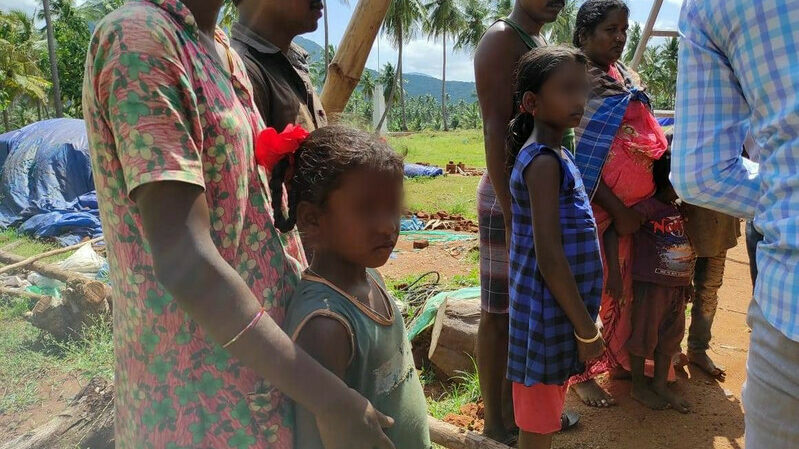Three Families Freed from Abusive Brick Kiln by Proactive Officials
Labor Trafficking
In September, authorities in southern India freed 11 people—including four children—from bonded labor at a brick kiln, where they had been forced to work for two years in brutal conditions under a powerful owner. The kids were between 7 and 13 years old and had endured the same harsh treatment as their parents.
IJM staff in Chennai had received a tip about the kiln in early September and passed it to our casework partner READ, who works in the area. READ staff visited the victims and confirmed the details of abuse, then worked with the District Legal Services Authority (DLSA) and the One Stop Crisis Team (OSCT) to bring the case to local authorities.
On September 7, a full rescue team—including police and child-protection officials—visited the kiln early in the afternoon to find all 11 victims hard at work, including the four children.
Authorities learned that these three families come from the Irular ethnic group—traditionally considered a lower caste than the wealthy kiln owner. This man owned many businesses and felt emboldened to exploit poorer laborers due to his status and power. He had lured the laborers two years ago with a generous payment advance of 350,000 rupees (about $4,700 USD). He then used this as a massive debt—with ongoing charges for food or medical care—to keep them under his control.
Every day, these three families were forced to mold 8,000-10,000 heavy clay bricks and fire them in a sweltering kiln. They toiled from 4:00 in the morning until 11:00 p.m. The owner “paid” them at most 1,000 rupees per week ($13), which was barely enough to feed all 11. On the day of the rescue operation, the families said they had not eaten a proper meal in a week.
The families also shared that the owner forced them to work on his farm or take care of his cows, goats, or his household chores. The children were also made to clean the whole compound and the owner’s house with brooms they made out of coconut leaves.
On top of the non-stop work, they faced constant verbal abuse and could never leave the worksite on their own. At night, they slept in crude shacks made of tin sheets, like the livestock at the farm nearby.
Stories of their daily abuse and exploitation were hard to hear, but officials in this case went above and beyond to keep the families safe.
The Revenue District Officer (RDO) who led the rescue operation had been trained twice by IJM on handling bonded labor cases, and he led his team to treat the victims with care and sensitivity. The experienced OSCT also helped ensure the operation followed all standard procedures and ensured the families got crisis care as soon as they were freed.
The rescue team helped the family pack up their belongings and move to safety at a government office, where they got warm meals and a chance to rest. They were able to give detailed statements which will help build a strong case against the abusive owner.
One READ social worker commented, “All departments worked in tandem to ensure that these deserving laborers were rescued and that all rehabilitative measures reach them at the opportune time. Even though some of the officials did not understand their role, they were willing to hear and learn and were amazed they could do so much in their capacity for these victims of bonded labor.”
One stand-out moment was when officials granted the seven adults Release Certificates, which break their false debts to the kiln owner and help them access future benefits. It has been very difficult to get these critical documents in this district in the past. IJM and READ staff were grateful and impressed to see authorities follow the full provisions of the law to ensure these 11 survivors received this critical protection.
Officials then helped the survivors open bank accounts and gave them funds to help them resettle in freedom in their hometowns. READ social workers will support their ongoing aftercare as they overcome their trauma, build stable lives, and help the children go back to school.
Next, district authorities will file an official police report against the kiln owner to hold him accountable, as well as protection order to defend his victims long-term.